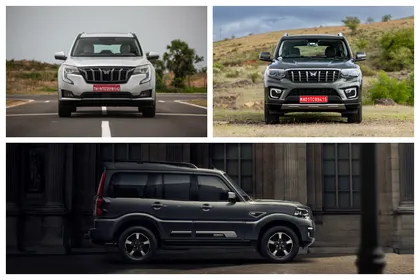
Mahindra SUVs Show Overwhelming Preference for Diesel Despite Petrol Availability
In India’s competitive car market, Mahindra stands out for its rugged SUVs often offered with both petrol and diesel powertrains. But a recent breakdown of their January 2024 sales reveals a clear preference for the latter, particularly in popular models like the Scorpio, Thar, and XUV700. Let’s delve deeper into the numbers and explore the reasons behind this trend.
Scorpio & Scorpio N: Diesel Dominates with 94% Share
Combining sales figures for both the Mahindra Scorpio N and the Scorpio Classic, diesel variants ruled the roost, accounting for a whopping 94% of total sales. This is despite the Scorpio Classic only offering diesel with a manual transmission. Even the Scorpio N’s petrol variant saw a decline compared to the previous year, highlighting the clear preference for diesel power in this rugged SUV.
| Powertrain | January 2023 | January 2024 |
| Petrol | 654 | 765 |
| Diesel | 8,061 | 13,528 |
| Powertrain | January 2023 | January 2024 |
| Petrol | 7.5 % | 5.4 % |
| Diesel | 92.5 % | 94.6 % |
Thar Sees Increase in Petrol Demand, But Diesel Still Leads
The Mahindra Thar presents a slightly different picture. While the 2.2-liter diesel engine remains the preferred choice, the 1.5-liter diesel and 2.0-liter turbo-petrol options saw increased demand compared to the previous year. Petrol variants now account for over 10% of total Thar sales, suggesting a gradual shift in preferences.
| Powertrain | January 2023 | January 2024 |
| Petrol | 334 | 657 |
| Diesel | 4,076 | 5,402 |
| Powertrain | January 2023 | January 2024 |
| Petrol | 7.5 % | 5.4 % |
| Diesel | 92.5 % | 94.6 % |
XUV700 Witnesses Growth in Both Engines, But Diesel Takes the Lead
The Mahindra XUV700 saw positive growth in both petrol and diesel sales in January 2024. However, the diesel variants still outsold their petrol counterparts by a significant margin, exceeding 5,000 units compared to petrol’s under 2,000. Nevertheless, petrol variants saw a 4% sales increase compared to the previous year, indicating a potential rise in popularity.
| Powertrain | January 2023 | January 2024 |
| Petrol | 1,375 | 1,989 |
| Diesel | 4,412 | 5,217 |
| Powertrain | January 2023 | January 2024 |
| Petrol | 23.8 % | 27.6 % |
| Diesel | 76.2 % | 72.4 % |
Factors Influencing the Diesel Preference:
Several factors contribute to the continued preference for diesel engines in Mahindra SUVs:
- Fuel Efficiency: Traditionally, diesel engines have offered better fuel efficiency, especially for larger vehicles like SUVs.
- Torque and Power Delivery: Diesel engines are known for their higher torque, providing better pulling power and performance, especially during off-roading or carrying heavy loads.
- Resale Value: Diesel vehicles often hold their resale value better, making them a potentially more economical choice in the long run.
Looking Ahead: Will Diesel Remain King?
While the popularity of diesel engines remains strong, factors like stricter emission norms and rising fuel prices might gradually tilt the scales towards petrol and electric alternatives. Mahindra itself is investing heavily in electrification, offering hybrid and electric options in some models. Only time will tell if diesel can maintain its dominance in the face of evolving market trends and customer preferences.
FAQs:
1. Why is diesel still popular in Mahindra SUVs?
Fuel efficiency, higher torque, better resale value, and established performance are key factors.
2. Are Mahindra SUVs available only in diesel and petrol engines?
No, some models like the XUV700 offer hybrid and electric options.
3. Will Mahindra discontinue diesel engines soon?
Not likely in the near future, but they are diversifying their portfolio with alternative powertrains.
4. Which Mahindra SUV has the highest diesel sales?
The Scorpio and Scorpio N combined hold the top spot with a 94% diesel preference.
5. What factors might affect the future of diesel engines in India?
Stricter emission norms, rising fuel prices, and increasing popularity of electric vehicles could play a role.




